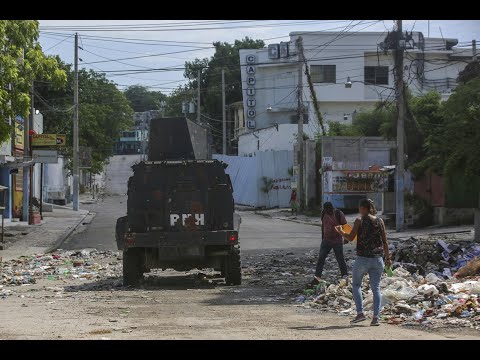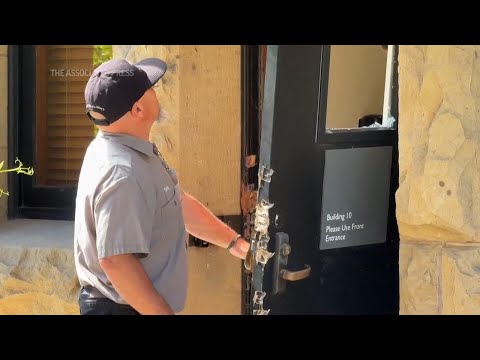(24 Jun 2024)
RESTRICTION SUMMARY:
ASSOCIATED PRESS
Port-au-Prince, Haiti – 24 June 2024
1. Various of police on street directing traffic and people in the marketplace
2. Teacher Verna Siber sitting and chatting with electrician Maxime Josaphat
3. SOUNDBITE (Haitian Creole) Verna Siber, teacher:
“More forces must arrive. They need to be everywhere in the country so the Haitian people can have some freedom.”
4. People riding bicycles in the park
5. SOUNDBITE (Haitian Creole) Maxime Josaphat, electrician:
“Well, for me, they took too long (Kenyan police). If I remember well, we have been suffering for four years, and if there were anything the state authorities could have done, they would have. If someone else can do anything to help… We are in a prison here. We cannot go anywhere; we cannot go to the countryside. We are in jail in Port-au-Prince."
6. People walking in park
7. Nurse Nathalie François sitting on park bench
8. SOUNDBITE (Haitian Creole) Nathalie François, nurse:
“It is not the foreigners that will solve our problems. It is up to us to come up with solutions, but still, we accept the help because we cannot go anywhere because so many areas of the country are lawless. We can’t eat, people are sleeping in the streets, and children cannot go to school. If they come to help us, I say, yes.”
9. Various of cars, streets, city
10. People eating on street
STORYLINE:
Nearly two years after Haiti urgently requested help to quell a surge in gang violence, people in the country have mixed reactions to the news that hundreds of Kenyan police officers are finally heading to the troubled nation.
On Monday, in the streets of the capital, Port-au-Prince, some welcomed their arrival, while others viewed the force with caution.
Verna Siber is a teacher in Port-au-Prince.
He said “they have to be everywhere in the country if we are ever going to be free.”
Nathalie François, a nurse, said she thinks the solution to Haiti’s problems is the responsibility of the country’s people, but she welcomes any help if it allows residents the security they need to move freely in the country and feed themselves.
For Maxime Josaphat, an electrician in Port-au-Prince, he thinks it took too long for help to arrive.
“We have been suffering for four years,” he said.
The Kenyan police will lead a multinational force against the powerful gangs whose deadly violence spiked this year.
The Haitian National Police is underfunded and ill-equipped.
A U.N. report notes that it has only around 4,000 officers on duty at a time in a country of more than 11 million inhabitants.
It is not clear what the Kenyans’ first assignment would be.
Still, they face violent gangs that control 80% of Haiti’s capital and have left more than 580,000 people across the country homeless as they pillage neighborhoods in their quest to control more territory.
According to the U.N. Security Council, forces from countries including the Bahamas, Bangladesh, Barbados, Benin, Chad, and Jamaica will join the Kenyans, for a total of 2,500 police officers who will be deployed in phases at an annual cost of some $600 million.
AP Video shot by Pierre Luxama
===========================================================
Clients are reminded to adhere to all listed restrictions and to check the terms of their licence agreements. For further assistance, please contact the AP Archive on: Tel +44(0)2074827482 Email: info@aparchive.com.
Find out more about AP Archive: http://www.aparchive.com/HowWeWork
Twitter: https://twitter.com/AP_Archive
Facebook: https://www.facebook.com/APArchives
Instagram: https://www.instagram.com/APNews/
You can license this story through AP Archive: http://www.aparchive.com/metadata/youtube/3123a430802340d7b1187cdcbbd4de76





